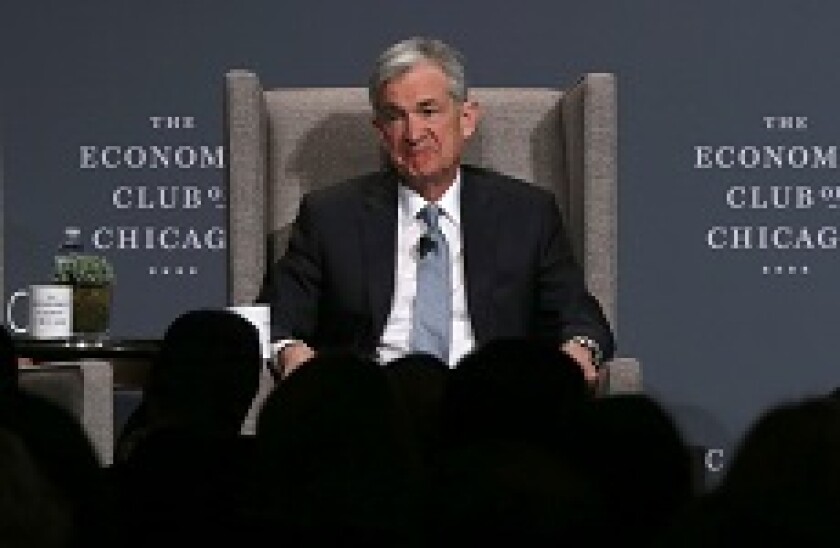Since the grim times late in 2018, securities have rallied across asset classes and geographies, and this has prompted primary market transactions at ultra-tight spreads and large order books.
So what has changed since the end of last year, when pessimistic senior bankers predicted volatility and wider spreads? After all, many of the specific geopolitical concerns, like trade tensions and Brexit, have not dissipated.
The reason is monetary policy. The lacklustre global economy has forced the hand of central bankers, making them press pause on tightening.
Research house Capital Economics expects global GDP growth to drop to a 10 year low over the next 24 months.
The German Council of Economic Experts revised down its 2019 GDP forecast for Germany to 0.8% on Tuesday; in China, an economic recovery “will remain elusive” for now, according to Freya Beamish, chief Asia economist at Pantheon Macroeconomics.
Jerome Powell, chair of the Federal Reserve, took a dovish stance at the turn of the year, assuring that the US central bank would be patient on tightening. And the European Central Bank decided this month not to raise rates until 2020, while also offering another round of targeted longer-term refinancing operations (TLTRO) for banks.
Markets have rebounded, and much of this can be attributed to monetary policy. The S&P 500 is up 12.9% on the beginning of the year; the STOXX Euro 600 index is up by 14.0%. The Markit iTraxx Europe Crossover has tightened from 355bp to 265bp.
But this goldilocks situation of cheap money without the fallout of a recession cannot persist. Slowing growth inevitably hits firms’ profitability and credit quality. In Europe and Japan, banks face the profitability challenge of low net interest margins.
Meanwhile, central banks are on the brink of being forced to try untested policies. A decade since the crisis, their interest rates remain pegged down, and their balance sheets are still inflated. If economies worsen, officials may have to pull different levers, like helicopter money or negative rates. No one knows how effective this would be in propping up the markets in the long term.
The role of the central bank is also set to come under more scrutiny this time around. The distributional effects of low interest rates and securities purchase programmes will come under more fire as politicians worry about inequality.
Ten years of artificially boosting asset prices to kick-start the economy has helped — surprise, surprise — those with assets. Letting the price of securities fall may not be seen as such a bad thing.
The market is enjoying the ride for now. But benefiting indirectly from slowing growth is unsustainable, and cannot last forever.

